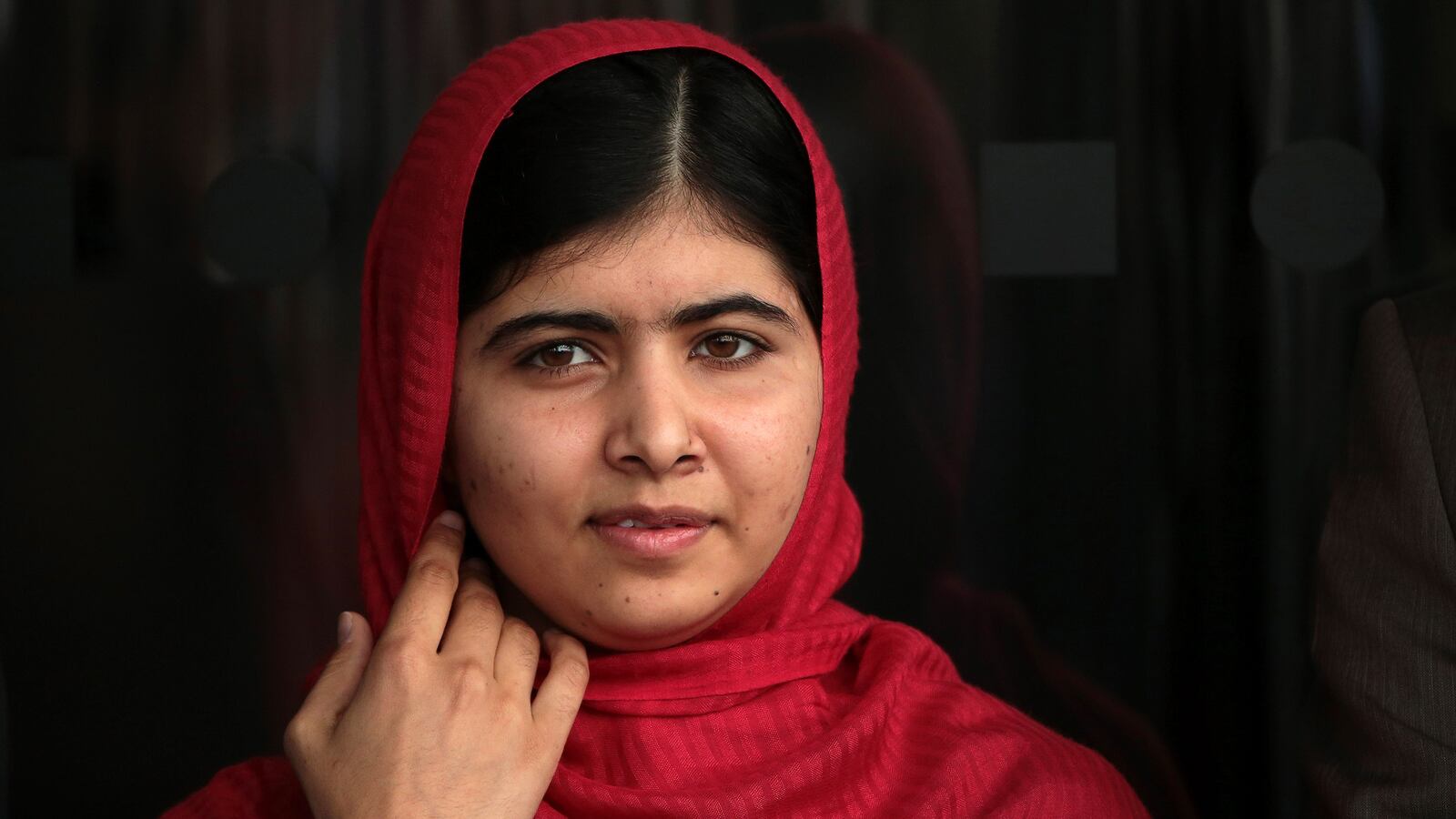The Taliban asked for Malala by name, and then they shot her.
Time was suspended as the world watched and waited for news about the young, brave girl from the Swat Valley. Miraculously, Malala survived, and her courage, wisdom, and optimism have continued to transfix and inspire the world. This week, on December 10th, Human Rights Day, she will receive the Nobel Prize—the youngest person ever to be honored. Her stated platform is universal education and girls’ rights, which she has promoted tirelessly even before she was catapulted to the international stage.
Education for girls is paramount: educating girls means increased opportunities for women and reduced incidence of exploitation and subjugation for her, her children, and grandchildren. Girls who are educated give back to their communities; they become change agents and leaders. They are not locked into the whims of those more powerful, because their knowledge and abilities open doors.
It is essential to promote girls’ education, but is it enough?
Girls’ education is a worthy platform, but when oversimplified, it is impotent.
In order for universal girls’ education to take hold, we must have an honest debate about the reasons why girls are denied schooling.
In Guatemala, only 3 out of 10 children graduate from the 6th grade. Of the 2 million children in Guatemala that do not attend school, the majority are indigenous girls living in rural areas. The funding of schools is insufficient, and many of the girls drop out to support their families, or because they cannot afford the price of books and uniforms. Similar stories plague many parts of Latin America, Africa, and Eastern Asia. In this case, poverty deprives girls of an education.
Then there is the story of Malala, and many others growing up in honor-based, extremist societies. In Malala’s native Pakistan, her father was a schoolmaster and education was valued in her family. Many girls in her region freely attended school until the Taliban forbade girls’ education in 2009. Of the 1,576 schools in Swat, the Taliban damaged 401. Of these, 70% were girls’ schools. The Taliban claimed girls education in the region was “western” and against Islam. After the ban on girls’ schools, a Taliban spokesman said: “Before they become engineers and teachers and doctors, these young people must be trained for jihad.” Malala and her family defied the educational ban, and continued to speak out for girls’ western education. As such, Malala and her father were both targeted by the Taliban, and she was almost killed for her beliefs.
Brutal attacks against girls in the name of extremist ideology are not limited to Pakistan. Just last year, over 200 Nigerian girls were kidnapped from their school by the radical Islamist group Boko Haram. The name of their terror group translates into “Western education is sin.” The group vehemently opposes girls’ education, believing in a version of sharia law that dictates women and girls should be wives and mothers without receiving an education. The group has systematically kidnapped and killed children and targeted schools in Nigeria as a way to promote their extremist ideology.
There is a difference between a girl in Guatemala, too poor to go to school, and another who is banned by an extremism ideology that sees girls as second class citizens. Malala’s global campaign should highlight these differences, in order to be effective in finding solutions.
Poverty and lack of investment in schooling should be tackled to promote girls’ education, but it is a specific solution for girls living in certain societies. In these systems, governments should be encouraged to invest more of their GDP into education and to remove barriers to education such as uniforms and book fees. All of us can support groups that pay for school fees and other expenses of girls denied an education due to poverty.
Yet, for millions of girls around the world living under extremist governments, different solutions must be promoted. In some cases, an ideologically-motivated education is readily available for girls, just not an open, western pluralistic model. For example, in Malala’s native Pakistan, a network of private schools has publicly attacked Malala, creating an “I am not Malala day” in order to denounce and distance her from Pakistan. According to the organizer, “the West has created this persona [Malala] who is against the Constitution and Islamic ideology of Pakistan.” Tragically, in this case, an educational system has come out against Malala’s platform of girls’ empowerment and education. If certain schools and educators are against Malala’s vision, then a one-size-fits-all rallying cry will not succeed.
Girls’ education deserves the recognition of the international community. But to make any meaningful change, we must work actively to speak out and challenge extremist cultures and traditions that subjugate women and girls. Malala’s experience—and ultimate rejection—of extremism in favor of tolerance, cooperation, and peace is a worthy example to follow. With her Nobel Prize, she has a responsibility to tackle more than girls’ education, but also the radical ideologies which deny it.
Paula Kweskin is an attorney specializing in international humanitarian and human rights law. She is producer of Honor Diaries, an award-winning documentary film focused on women’s rights and gender empowerment.






